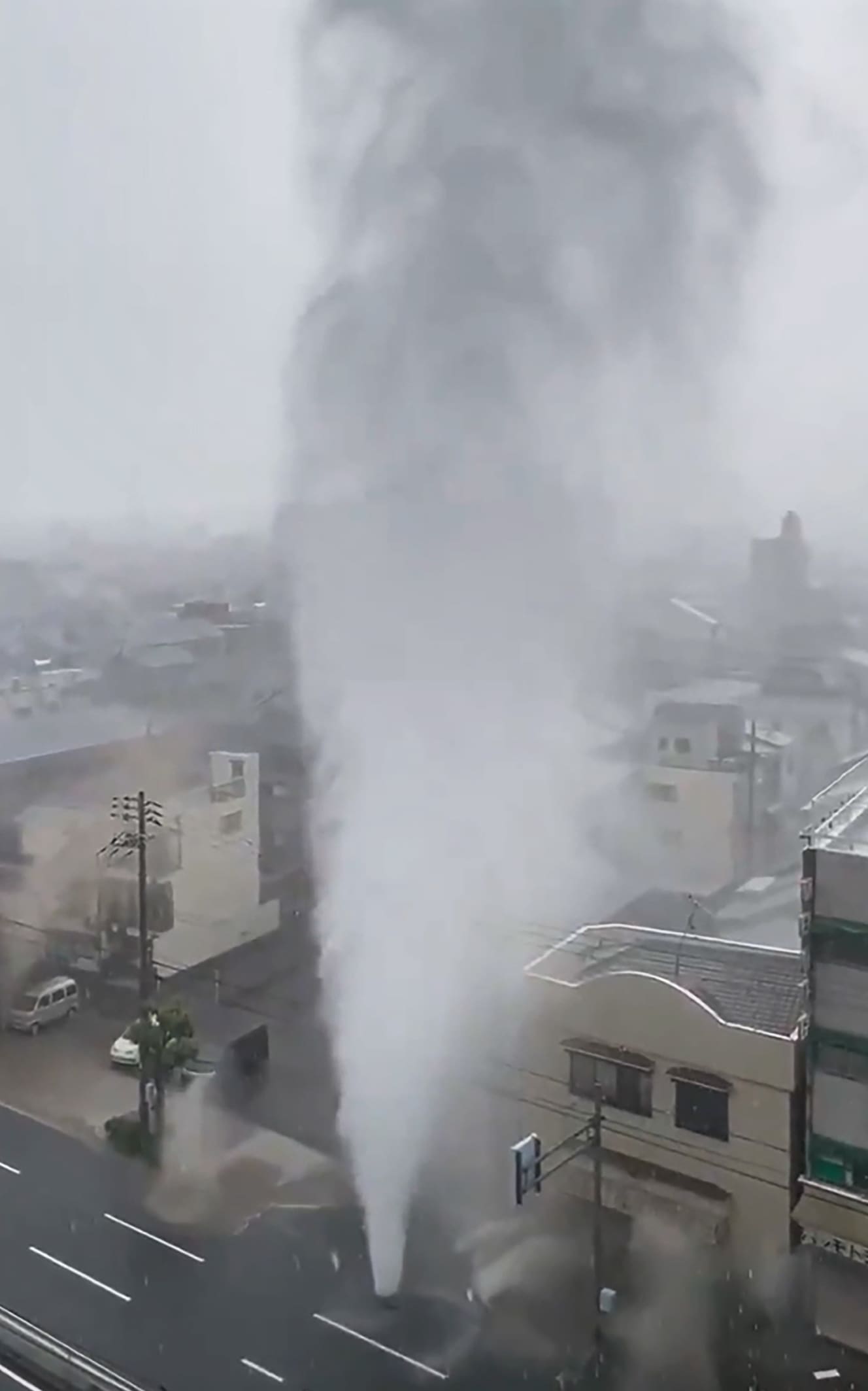The Terrifying Moment a 60 kg Manhole Cover Plummets from 6 Meters
At Tokyo’s Shinjuku Station.
In addition to aging infrastructure, the increasing size of typhoons and the rise in sudden heavy rainstorms have heightened the risk of incidents.

“In the midst of a torrential downpour, I heard a woman scream. When I looked in the direction of the voice, water was violently shooting up from a manhole. The spray must have reached about 15 meters high, and the force of the water blew off the manhole cover,” said a witness.
On August 21, sewage gushed from manholes near JR Shinjuku Station in Tokyo. Although the city has been working on infrastructure designed to withstand 75mm of rain per hour, that day saw a record-breaking downpour near neighboring Minato Ward. The rainfall far exceeded the system’s capacity, causing water to surge out of the manholes. A representative from the Tokyo Metropolitan Sewerage Bureau explained:
“When a large volume of rainwater rapidly enters the sewage system, the water level rises quickly, and the air pressure shoots up, triggering a phenomenon known as air hammer. On that day, manhole covers were displaced and pavement buckled in five locations.”
The air hammer phenomenon can generate a pressure of up to six tons in an instant. In Shinjuku, a manhole cover weighing about 60 kg was blown six meters into the air before crashing back down.
Similar incidents are happening nationwide. Junpei Tanaka, a resident of Higashi-Osaka who experienced such an event in July 2021, recalled:
“During a sudden downpour, I heard loud boom, boom sounds. When I looked out from my ninth-floor apartment, water was shooting up from a manhole to the height of my window. Debris was flung into the air, hitting my car and damaging it beyond repair.”
With the increasing frequency of large typhoons and sudden heavy rains, the risk of air hammer incidents is rising. Mr. Naohide Oishi of the Japan Ground Manhole Industry Association warns:
“There are approximately 16 million manholes for sewage systems nationwide, and in the past 23 years, there have been 106 accidents where covers were blown off due to heavy rain. While manhole covers manufactured after 1991 have safety features, nearly 6 million older types still lack them.”
As long as these old covers remain in use, it’s crucial to avoid approaching manholes during heavy rain.

From the September 27 and October 4 combined issue of FRIDAY